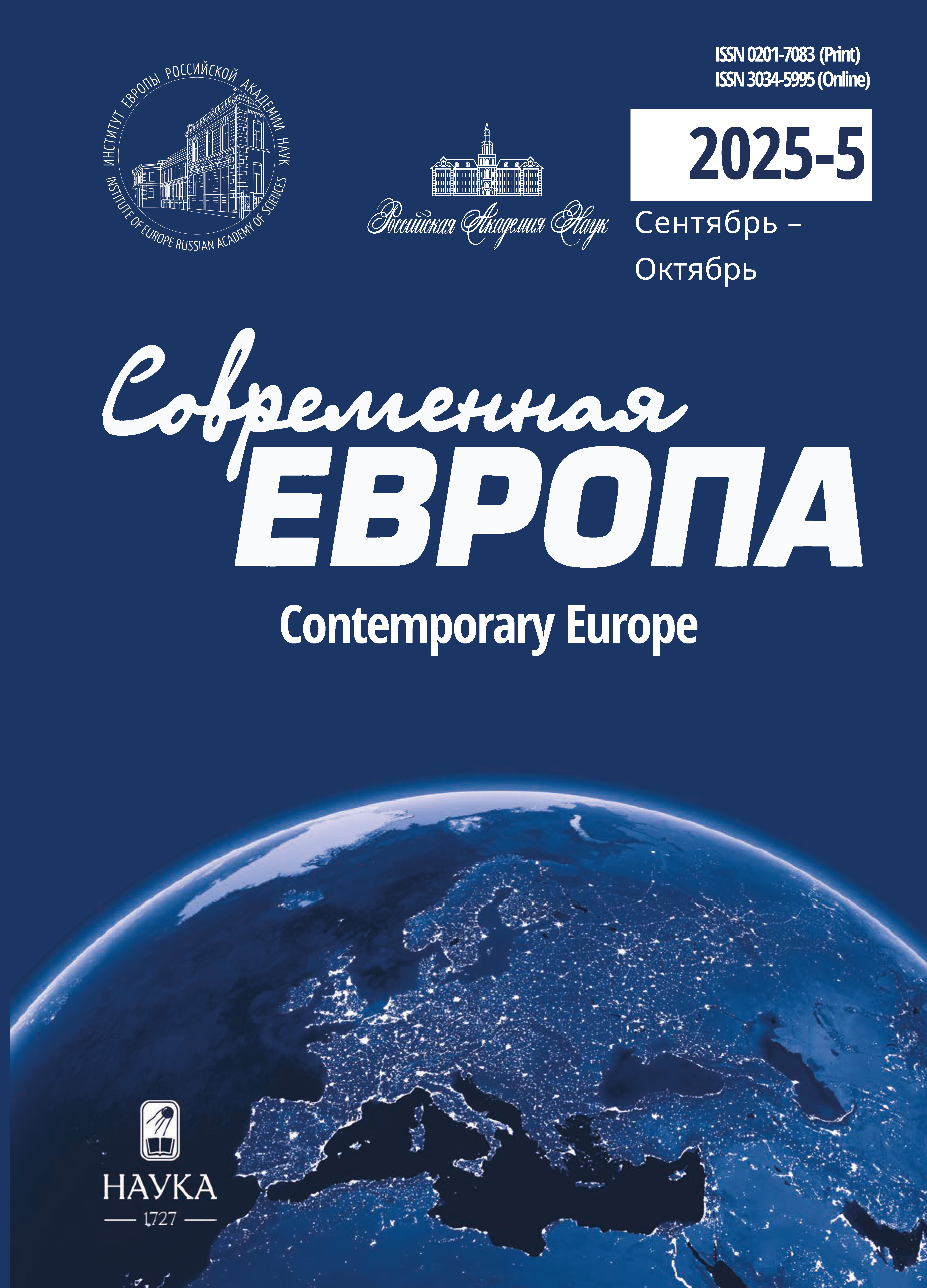No 3 (117) (2023)
Articles
The impact of the EU enlargement on the speed of decision-making
Abstract
 5-19
5-19


EU travel restrictions for russian citizens: political and legal issues
Abstract
 20-32
20-32


"Strategic sovereignty" and "Strategic autonomy" in the EU’s official discourse: a morphological analysis of ideology
Abstract
 33-44
33-44


Russia in public discourse and public opinion of citizens of the Italian Republic
Abstract
 45-56
45-56


The Kosovo problem: Serbia faces a decisive choice
Abstract
 57-67
57-67


The EU assistance in solving the problem of scientific and technological development of Jordan
Abstract
 68-81
68-81


The support of small and medium enterprises for sustainable development in the EU
Abstract
 82-94
82-94


Spanish economy on the trajectory of the modernisation process
Abstract
 95-106
95-106


Accelerated universities: European and Asian experience
Abstract
 107-117
107-117


State and civil society: peculiarities of the german approach
Abstract
 118-130
118-130


Political mediageography: consumption of feminism in Northern Europe
Abstract
 131-142
131-142


Theology and politics. political attempts to subordinate the Church
Abstract
 143-151
143-151


Migration and islamic fundamentalism in the context of discourse of postmodernism
Abstract
 152-163
152-163


Europeans in Japan: from trade to knowledge
Abstract
 164-177
164-177


Geopolitics’ past and future: negation of the negation
Abstract
 178-187
178-187


Russian view on the political landscape of Latin America
Abstract
 188-197
188-197


Portrayal of Russian Foreign Policy towards Georgia in 2008 and Ukraine in 2014 in the Western and Russian Academia
Abstract
This study examines how the Russo-Georgian War in 2008 and the Ukraine Crisis in 2014 were discussed in Western and Russian academic circles. The findings show that historical accounts as well as various theoretical frameworks were used to explain the Russian foreign policy (RFP) regarding these conflicts. In comparison, although mono-theoretical models were utilized in both cases, they are more dominant in the works of Western scholars. On the other hand, inductive historical explanations were used more in the works of Russian scholars. Another important point is that in the latter studies, alternative accounts to the Western unilateralism are more popular. These accounts reveal themselves with concepts such as “multipolar world” or “Eurasianism”. As for the mono theoretical accounts, realist approaches seem to be the dominant framework in both cases. Realist frameworks emphasize the improved material capabilities of Russia and external pressures in its sphere of influence. The later component of the realist approach is stressed more by scholars from both academic circles. Moreover, even the studies that utilize different approaches, such as ideational explanations, domestic political factors, decision-maker related approaches, or the ones that highlight the regional competition, emphasize the role of the strategic or geopolitical imperatives as a factor that cannot be ignored regarding how RFP is formed and implemented.
 198-209
198-209


Pages of the Struggle of Soviet Diplomacy for the Membershipof the Ukrainian SSR and the BSSR in the UN
 210-213
210-213













